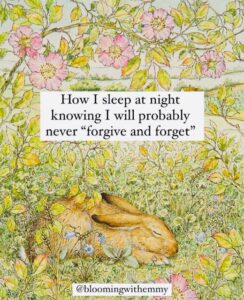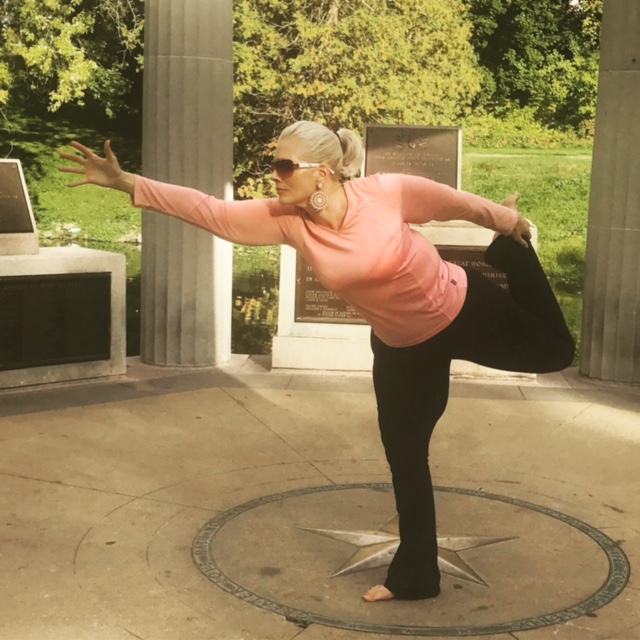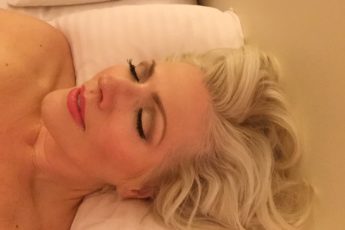
The unavoidable
I lay on my back in the dark, staring at the ceiling with tears silently streaming down my face. Quickly, I wiped a rivulet on the left cheek before it could spill into my ear. Humiliation had become all too familiar a condition for me by the time I was 12. I’d come to accept being belittled and insulted by classmates, acquaintances, and even strangers, but this round was particularly devastating because I lay there in a sleeping bag surrounded by ‘friends.’ Four adolescent girls in a downstairs den all sleeping blissfully, except for me. I couldn’t get the evening’s events out of my mind. It was another sleepover, which for me, meant another opportunity to be designated the lowest rung on the social ladder.
Several hours earlier, the girl hosting the festive occasion had spent the evening alternately ignoring and belittling me, calling me a ‘stupid jerk’, and a ‘fat, immature jerk’ because she didn’t like the way I played charades. She also let the other girls know she didn’t like the way I smelled as she wrinkled her nose and glared at me, commanding me to get away from her. Apparently, I could do nothing right in her eyes. She was liberal in her disdain for me as she’d laugh and giggle with the other girls, withholding eye contact, and ignoring me on the few occasions I was brave enough to make a verbal contribution. I used to wonder why she would reissue me invitations to her house when she clearly had no desire to connect with me. But the answer became clear over time. She needed someone to kick around so she could forget her own unenviable station in life: an awkward, nerdy adolescent who wasn’t exactly at the top of the school social hierarchy. But fat always trumps any other social handicap, which left me at her mercy each time there was a sleepover, or birthday party (where she was fond of snatching toys out of my hands plunking them in the corner of the room with an authoritative slam).
In stark contrast to the hostess’s antagonism towards me was her obsequious fawning over the pretty girl. She fluttered subserviently around pretty girl, making sure she had enough to eat and drink, had comfy pillows, the best seat on the couch. Nothing was too good for her. We were all on the threshold of puberty and had become accustomed to our stations in life. Pretty girl had come to expect the shower of obeisances and I was always ready for collapse-and-submit posturing for when the insults were fired at random.
The other two girls at the slumber party neither participated in the degradation nor defended me, but were visibly uncomfortable with the hostess’s abusive behavior. Especially when she and pretty girl engaged in a round of ‘Let’s see who can make Stacey blush first.’ It was a sadistic ritual I could bank on happening every time I was in their presence, and I dreaded their gleeful announcement of it. To say I was shy and bereft of self-esteem at age 12 was an understatement. I didn’t expect mercy from the school bullies, but when my ‘friends’ undercut my dignity with such deliberate schadenfreude, it was its own kind of pain. As they carried out their ritual, I found myself wondering how they could find such joy in the extraction of shame as I sat on the hot seat, cheeks aflame and fighting back a quivering lip.
Lying silently in the dark, reliving the past few hours, I carefully regulated my breathing. Being caught crying would only invite more ridicule. Playing dead and pretending I wasn’t hurt were the only ways I knew how to survive. Since stepping on the school bus six years prior, absorbing shrapnel had become routine. I’d become numb to it and numb to the fact that deep in my core, there was a quiet cauldron of broiling rage that wanted out. The bullies were bothersome and I hated encountering them, but it was when someone who was supposed to be a friend suddenly turned on me that broke my spirit and my heart. The depth of the betrayal shattered me and reinforced the ever-repeating message from others that I’m defective. Certainly, it was illogical to keep going back for more episodic mistreatment, but in my meager and myopic world, mean girls and occasional dart-throwers were better than having no friends at all. Hindsight, of course, has proved this incorrect, but 12-year-olds generally operate on bewildered desperation born of wanting to fit in.
Burrowing into a world of silent but agonizing denial is how I got through the early years. The survival skills to circumvent my sense of worthlessness included undue amounts of people-pleasing. I apprenticed in elementary school and perfected the skill into adulthood: I was the empty vessel there to serve the other’s personal needs, whether it was in the role of cowering fat girl remaining mute when insulted or later, as the unpaid therapist when there were boyfriend problems; and then as the more mature unpaid therapist when the ‘friends’ got married and had kids. I use the term ‘unpaid,’ because the time and energy I freely gave in listening intently and offering solutions to their woes was not returned. Somehow, when I needed a shoulder, they were uninterested and dismissive, sending me away with a ‘yeah, well it could be worse,’ wave of the hand, or a cold gaze that unmistakably said ‘…and this is relevant to me becuzzzz?’
Why did I put up with it? Simple. It was what I deserved. I knew this after years of reinforcement at school and at home. In early childhood, when the torment at school began reaching a crescendo, I assumed if I confided in my parents they would offer consolation, at least a crumb or two. They informed me I’d brought it on myself with my size and that if I didn’t like it, I should go on a diet and stay on one. Their indifference coupled what I experienced at school (or as I like to call it, Alcatraz for children) was a terrible foundation on which no healthy sense of self-worth could possibly take root.
The thing about self-image, whether it’s good or poor, is, it emanates like a radio frequency and people sense it. They sense confidence and people also sense an absence of it. So I attracted girls at school who weren’t really interested in being my friends, but were interested in playing the empowered alpha so they could, for a few delusional moments, feel like a mob boss.
I don’t wish on anybody the role I took on in childhood. Years later when I sought therapy to make sense of it all, I berated myself for not fighting back. There’s a deeply embedded shame that goes with being abused. And the shame is doubled when there’s no recourse to fight back. How could I? I was a terrified mess. I had no support at home and no support from anyone. Aunts and uncles, babysitters, grandmothers, doctors…they all railed at me because of my weight. I’ve been in group therapy with fellow sufferers and many reported at least having refuge from an abusive home life in their friendships. I didn’t even have that.
All the years I assumed the root of my worthlessness stemmed from the obvious: unsupportive, overly critical parents combined with the orchestrated attacks by the blonde-haired school bus sadist and his henchmen. It was only within the last year that I began putting the rest of the puzzle pieces together. My unconscious mind, after years of tamping down the truth, began sending up smoke signals. There was deep scaring from the unfriendly fire from friends. I don’t, to this day, know how I made it out of those years with my sanity. If surviving my childhood isn’t a case for the existence of guardian angels – I don’t know what is.
I’m soliloquizing on my collateral damage first and foremost, to cleanse myself. The time has come to unburden my spirit, which I never acknowledged was so severely broken by friends with less-than-noble intentions. The time has also come to unburden my body – literally. For the past several years, it has been under siege from autoimmune disease. It’s not new information that every disease has an emotional root, and trauma experts are in accord that unresolved trauma embeds in the body, especially the tissues, so it’s no surprise that one of my diagnoses is mixed connective tissue disease. I hope, one day, to be no longer hurting physically. Writing truthfully about the things I’ve been ashamed to admit to myself will surely help in all that. But my blogs have never been just about me. I write because readers tell me they relate and are comforted by the fact that someone else went through a difficult passage, too.
Reason No. 2 for delving into this topic is, well – look around you – because the fallout from kids being abused by their peers makes the news with horrifying regularity. I had it comparatively easy 50 years ago with garden-variety verbal and emotional abuse. Kids today are subjected to physical violence as well as emotional abuse at school, much of it recorded on phones and broadcast all over social media. In February, Adriana Kuch, a 14-year-old high school student from New Jersey, killed herself two days after being gang-attacked at her locker and beaten to a pulp while other students stood by and filmed. A teacher who witnessed the attack reportedly went back into her classroom and shut the door.
I can’t imagine it getting much worse than this, but it will if we don’t pay attention and hold ourselves, our children, and our school boards accountable. And support our kids by letting them know they are loved and accepted as they are. And while you’re at it, support an adult you think can benefit from a little random kindness. It’s by no means, a tall order, and if you think it is, or if you think this topic is frivolous and I should just shut up and move on because it happened so long ago, then you are, by definition, part of the problem.

Peace..At long last


